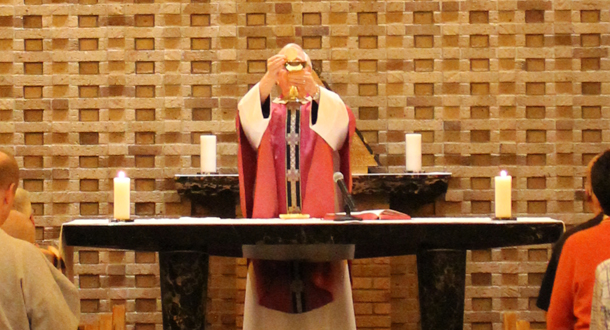 Scripture:
Scripture:
1 Kings 21:17-29
Matthew 5:43-48
Reflection:
Matthew has just finished giving the Beatitudes to his disciples. In this passage he goes further and talks about the obstacles that are destructive of discipleship. The first obstacle he identifies is anger. Several years ago a survey was taken of the Catholic priests in the United States. The survey showed that the level of anger was so high among the priests that it was judged to be so disturbing that it should not be published. About the same time another article was published on the “Anger of Priests.” The author of the article received so many responses to his article that the author of the article decided to write a response to remind his readers. In his response he reminded that the opposite of anger was “Gratitude.”
Gratitude is the happiness we have been given. It is the echo of joy. To be grateful is to share. There are high moments of aliveness in our lives. These moments of the heart are a deep all-pervading, overflowing sense of gratitude. When we reach our innermost heart. When we are at home with ourselves when we are intimately united with others. We experience gratitude.
Genesis tells us God created us by breathing life into us. The heart is where we meet God. But meeting God is prayer. Prayer is the very heart of religion. Hearts are restless until we find rest. We find rest when we find meaning. We find meaning when we find God. God is the source of all meaning. Gratitude strengthens our faith and makes it grow. We grow in gratitude when we grow in love.
A suffering God loves us. The gift of the incarnation and crucifixion of the son of God had defined our sense of gratitude.
Fr. Ken O’Malley, C.P., is a member of the Passionist Community at Sacred Heart Monastery in Louisville, Kentucky.

 Scripture:
Scripture: Feast of Corpus Christi
Feast of Corpus Christi Scripture:
Scripture: Scripture:
Scripture: Scripture:
Scripture: Scripture:
Scripture: Scripture:
Scripture: